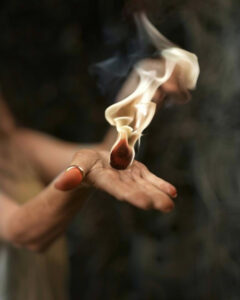Before I set out some thoughts about elemental memory and postmemory, it is worth taking a step back and stating what postmemory is. Simply put, postmemory describes the phenomenon of the traumatic events of the past living on through those living in the present. ‘With it’s roots firmly in thinking about the trauma of the Holocaust on postgenerations (1), the idea of postmemory is, I think, strong enough to lift out of this area’ (me, here, page 13), especially when seen in tandem with the idea that memory, and the memory of trauma, is passed from one generation to the next genetically. This may seem crazy, but it’s not. There is growing evidence that trauma is passed epigenetically (2), and this of course supports the whole idea of evolution – how do we evolve to adapt to our surroundings? The California state legislature have accepted this as a legal premise in Resolution ACR177 of 2017: ‘The impact of traumatic experiences may be epigenetically inherited via molecular memory that is passed down through generations’ (Hirsch 2019, 172).
My idea is that memory and postmemory are not unique or confined to living sentient beings, but are present in our earthly environment, and the ‘elements’ (3) within it. This is not proffered as scientific fact or theory, but as an idea within which to make conceptual photographs, and that is my challenge.
 I’ve written before about the memory of water and soil (see here). How water comes from within the environment, it is circular, and as such it’s possible to argue that there is no such thing as ‘new water’, so that all water is related, connected.
I’ve written before about the memory of water and soil (see here). How water comes from within the environment, it is circular, and as such it’s possible to argue that there is no such thing as ‘new water’, so that all water is related, connected.
I’ve discussed how soil is formed from plants that have gone before, rotted down, and how the soil then nurtures new growth. I’ve suggested that there is a sentience to both water and soil, and if this is accepted, then it’s a short journey to accepting that they both have a memory, a postmemory….
Another example of a life giving and taking element is fire. Is it possible that all fire is related? If I strike a match, does the flame somehow resonate with all flames that have gone before? Fire is both intentionally conjured and accidental. It exists within the confines of our atmosphere terrestrially speaking (and outside of it as well). The sun, the biggest fire in our galaxy, can conjure fire on earth, as can people either deliberately or accidentally; fire can occur by other conditions in the environment. The earth has magma at it’s core and always has had, which causes fire when it comes in to contact with combustibles and air. I think you know where this is going – does fire have a memory, and by extension, a postmemory – is it influenced and determined by what we might call ‘postfires’?

We can say that the ‘elements’ of fire, earth, water, are essential for existence. They have existed from the very birth of the planet and I believe that they are inextricably entwined. They (along with other elements) shape our environment and our very existence. Do they learn from the past? Is the past shaping their present and future? If they have memory, how does that inform their evolution in response to the havoc that mankind is inflicting upon the environment? Will they evolve due to the presence of their postmemory, and turn on mankind for their own survival?
It’s a scary thought.
Here are some photographs from a recent project: https://www.timwillcocks.com/remembering-fire/
Feel free to let me know what you think by emailing me at tim@timwillcocks.com
Footnotes & Bibio
1 Marianne Hirsch in ‘The Generation of Postmemory’ uses the term postgeneration/s/al to describe generations beyond the one that suffered historical trauma. (Hirsch 2012).
2 There’s an interesting article about this here: https://www.newscientist.com/article/dn24677-fear-of-a-smell-can-be-passed-down-several-generations/
3 I am referring to elements in the classical sense rather than the scientific one, for ease of understanding.
Hirsh, Marianne. “Connective Arts of Postmemory.” Analecta Política, vol. 9, no. 16, 2019, pp. 171-176, Analecta Política.